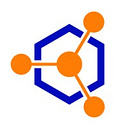How Cytotoxicity Screening is Revolutionizing Cancer Treatment and Drug Safety?

Cytotoxicity screening is critical for assessing unique aspects of drug efficacy and safety. Cell toxicity assays are vital for evaluating drug effectiveness while developing new drug products for various treatments. Analysis of toxic effects on different biological systems is one of the primary requirements in drug discovery and development processes. Toxicity testing has been traditionally employed since the 1950s. However, the approach has evolved. The primary goal of cell cytotoxicity assays is to assess and anticipate detrimental effects a substance may have on a particular organism.
Currently, animal testing continues to be a prime aspect of preclinical drug development. However, several aspects of in vivo and in vitro assay development are assessed to reduce the reliance on animal models and minimize their suffering. These initiatives have accelerated the growth of cytotoxicity screening in drug discovery and development. The current article dives deep into the role of cytotoxicity screening in cancer treatment and drug safety.
Cytotoxicity screening
Cytotoxicity Screening evaluates the ability of molecules to induce cell death or inhibit cell growth. They are critical in toxicology studies, cancer research, and drug development, enabling scientists and researchers to decode the effects of substances on cellular viability and health. The purpose of cell toxicity assays is to determine the extent of cellular damage a substance may induce, usually by studying several cellular properties such as mitochondrial function, enzyme activity, and membrane integrity. Let us understand the role of cytotoxicity screening in different domains.
Cell toxicity assays are critical for early drug development studies to screen and eliminate drugs with cytotoxic effects. This early retention technique allows drug developers to focus their time and resources on promising lead candidates with higher efficacy and safety profiles. Cell toxicity assays can establish the drug therapeutic index (an indicator of safety). This index is the ratio of toxic effects compared to the drug doses. Moreover, cytotoxicity screening also evaluates the detrimental properties of excipients and other formulatory molecules that may impact drug safety.
In toxicological evaluations, cell toxicity assays can assess the toxicity of chemicals, including industrial compounds, cosmetics, and household products. These assessments are vital in identifying potential risk factors and determining safe levels. Importantly, they can be used to study the impact of environmental contaminants such as pesticides, industrial waste, and heavy metals on cellular health and growth.
Cytotoxicity screening is critical in cancer studies to test the efficacy of new chemotherapeutics in destroying cancer cells. Resistance to cancer therapy is a significant concern. Cell toxicity assays can overcome this issue by helping scientists understand the reason behind cancerous cells becoming resistant to chemotherapy and thus help develop relevant strategies. Moreover, cell toxicity assays aid in targeted cancer therapies designed to kill cancer cells and minimize the effect on normal cells.
Today, multiple cell toxicity assay formats are available. Some of the common assay types are:
- Enzymatic cytotoxicity assay: focuses on enzymes secreted in response to cell damage or death.
- Viability assays: studies the cellular ability to maintain metabolic strength and avoid cell death under different conditions.
- Apoptosis assays: these assays identify programmed cell death, a controlled process.
- Autophagy assays: determine the process of cellular degradation and recycling cellular material.
- Cell proliferation assays: these assays assess cellular growth and division, which are primary indicators of normal and pathological states.
Must Read: The Role of PK Labs in Clinical Trial Design and Execution
Screening of cancer drugs for safety
Recent technological advancements in the biomedical and pharmaceutical sectors have resulted in substantial growth in medical care. Novel drug products have helped resolve many diseases earlier considered as incurable. Today, the focus is on developing next-generation drugs for cancer and other metabolic disorders. These drug products require in-depth toxicological assessments to test their efficacy and safety for human use. Preclinical testing of anticancer therapeutics aims at obtaining data on pharmacokinetics, pharmacodynamics, and toxicological profiles relevant to phase I, II, and III clinical trials and post-marketing assessments.
Preclinical toxicological assessments focus on generating data on acute and sub-acute toxicity, chronic toxicity, mutagenicity, carcinogenicity, and effects on the reproductive system. This toxicity data is submitted to acquire an investigated new drug application or new drug application. The potential risk-to-benefit ratio of chemotherapeutics is carefully considered so that the benefits to the target population outweigh the risks related to side effects.
Damage to the cells, tissues, and organs is a huge concern. Regulatory agencies require multiple tests for drug approval. The primary aim of these preclinical safety studies is to identify initial safe doses that can be escalated dose-dependently, establish the maximum tolerated dose, determine the potential organs that can be affected due to toxicity, determine clinical monitoring parameters, and identify potential genotoxic effects.
In conclusion
Cytotoxicity screening is critical for drug discovery and development. Identifying the potential impact of drug compounds on cellular health is necessary to identify effective yet safe products. Moreover, implementing cell toxicity assays early during drug discovery can help identify lead candidates with potential toxic effects and accelerate drug development projects.
